Paramedics work under pressure, often in high-pressure situations. In this fast-paced job, it’s essential to have an organized and effective resume. A resume is your first impression and an opportunity to highlight your skills, experience, and education in the best light possible. It is also the document that will get you a job interview – or not. An unimpressive resume can easily fall into the trash without a second glance. A well-written paramedic resume is crucial to being taken seriously when applying for a new role. With so many different resumes available, it can be challenging to know which one is right for you and your unique set of skills and experiences. This article aims to give a brief insight into what makes an effective resume and how you can create one with our helpful tips and examples.
Paramedic Resume Example

Download This Paramedic Resume as PDF
Police Officer Resume Example
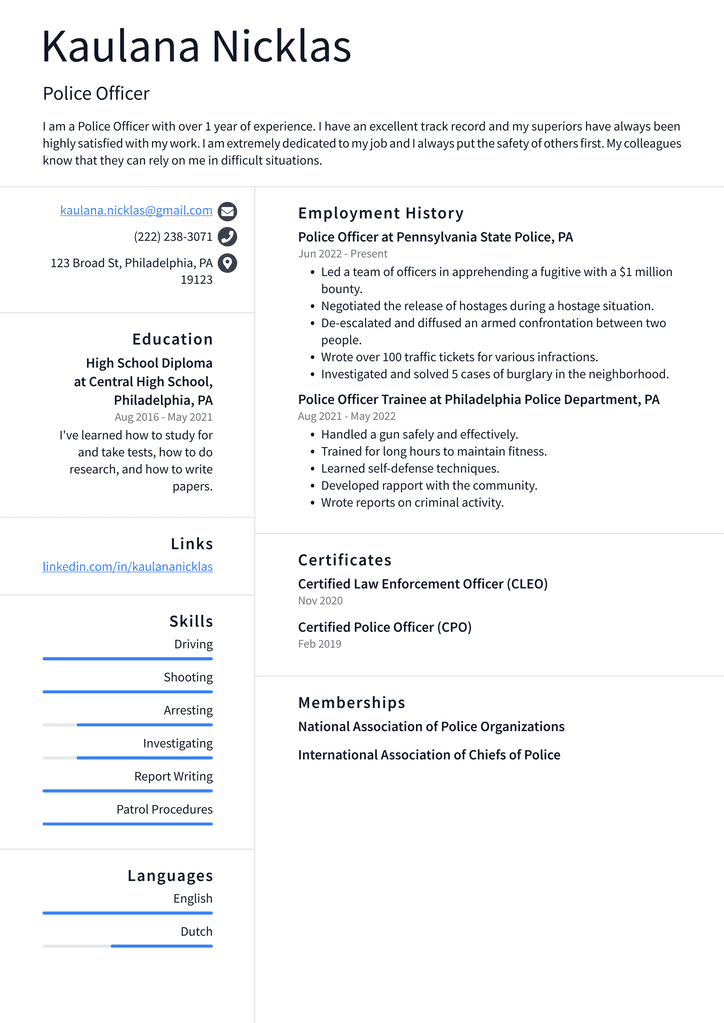
Download This Police Officer Resume as PDF
Nurse Resume Example
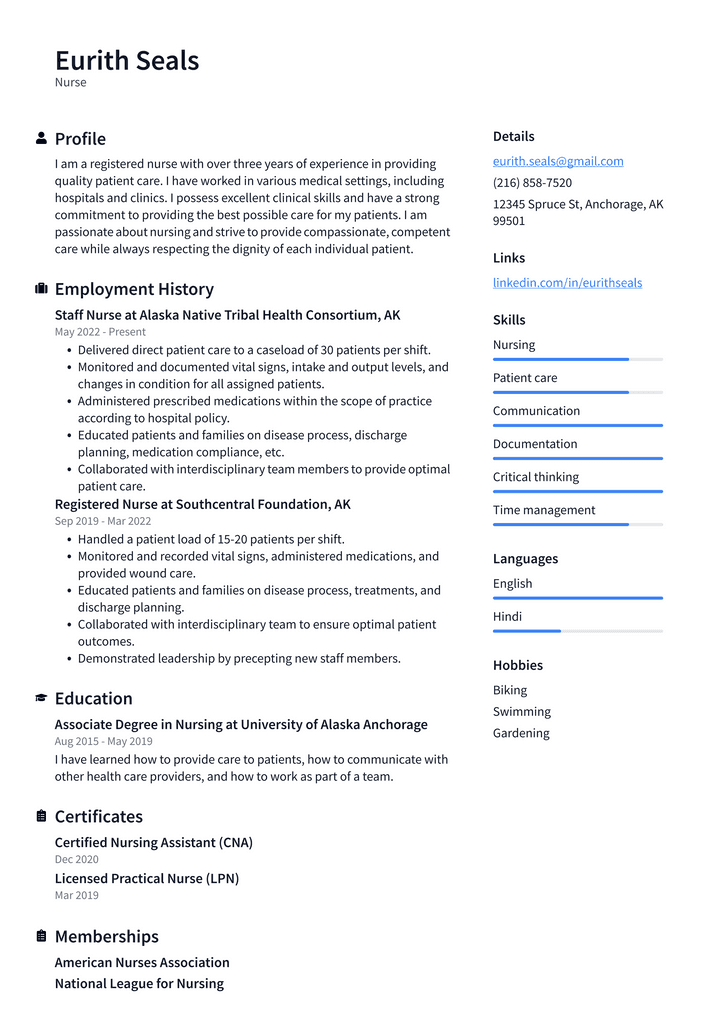
Download This Nurse Resume as PDF
Firefighter Resume Example
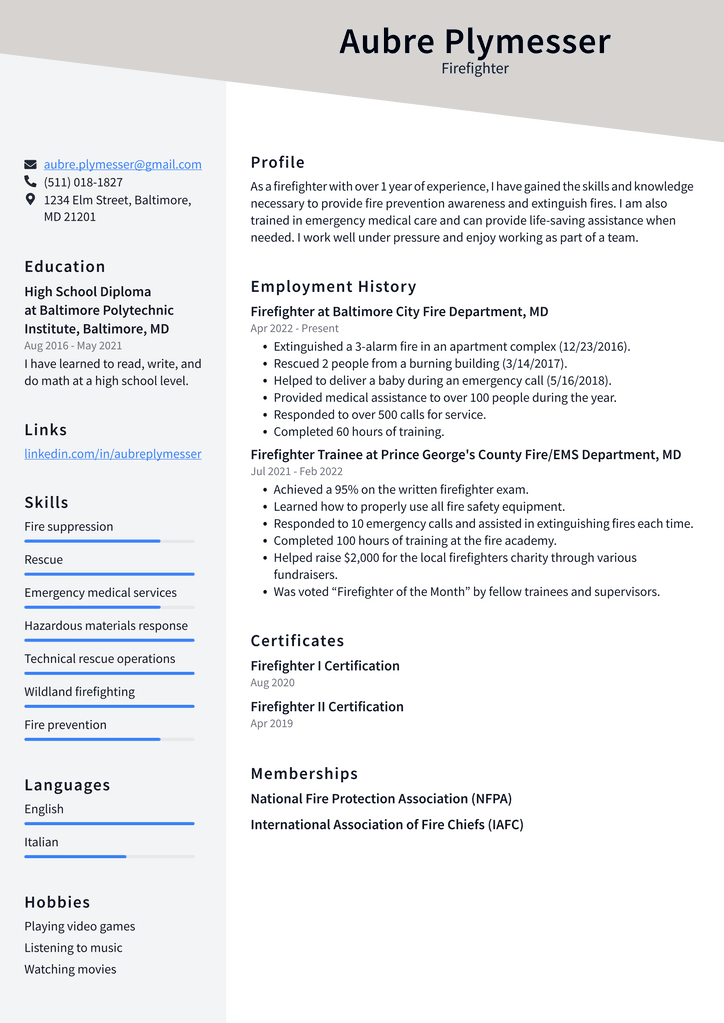
Download This Firefighter Resume as PDF
Ambulance Driver Resume Example
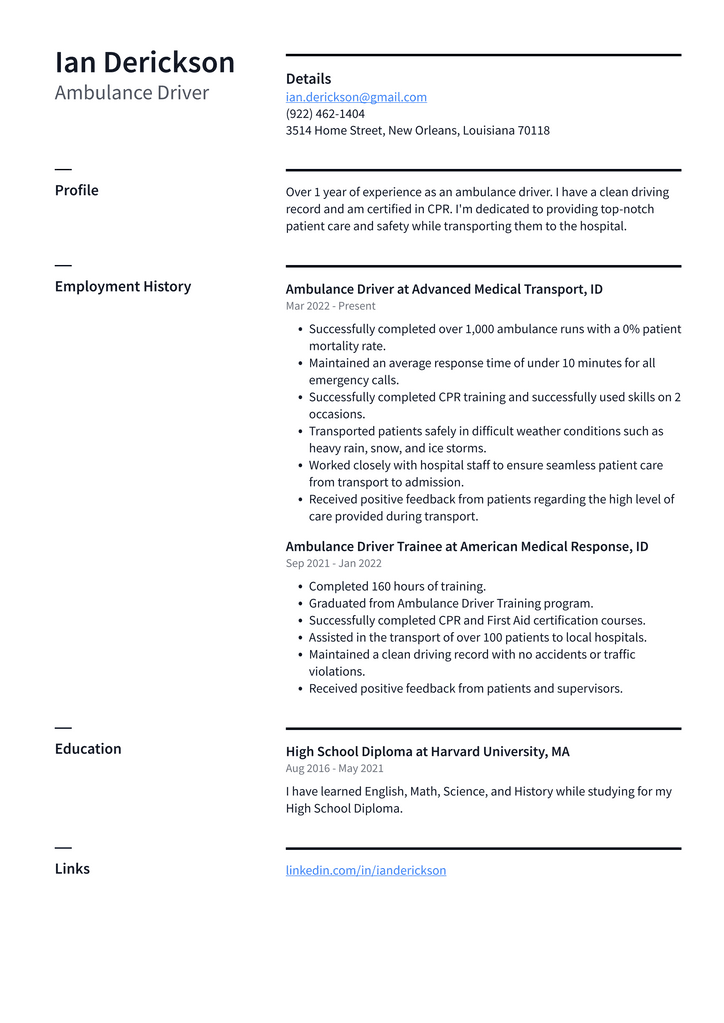
Download This Ambulance Driver Resume as PDF
EMT Dispatcher Resume Example
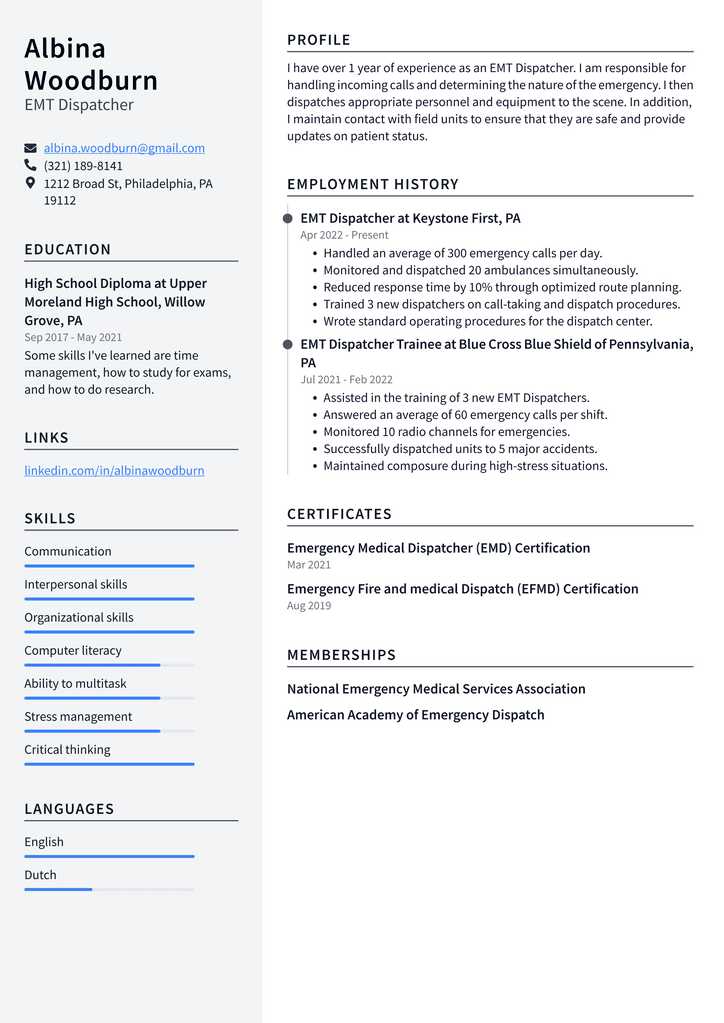
Download This EMT Dispatcher Resume as PDF
EMT Resume Example
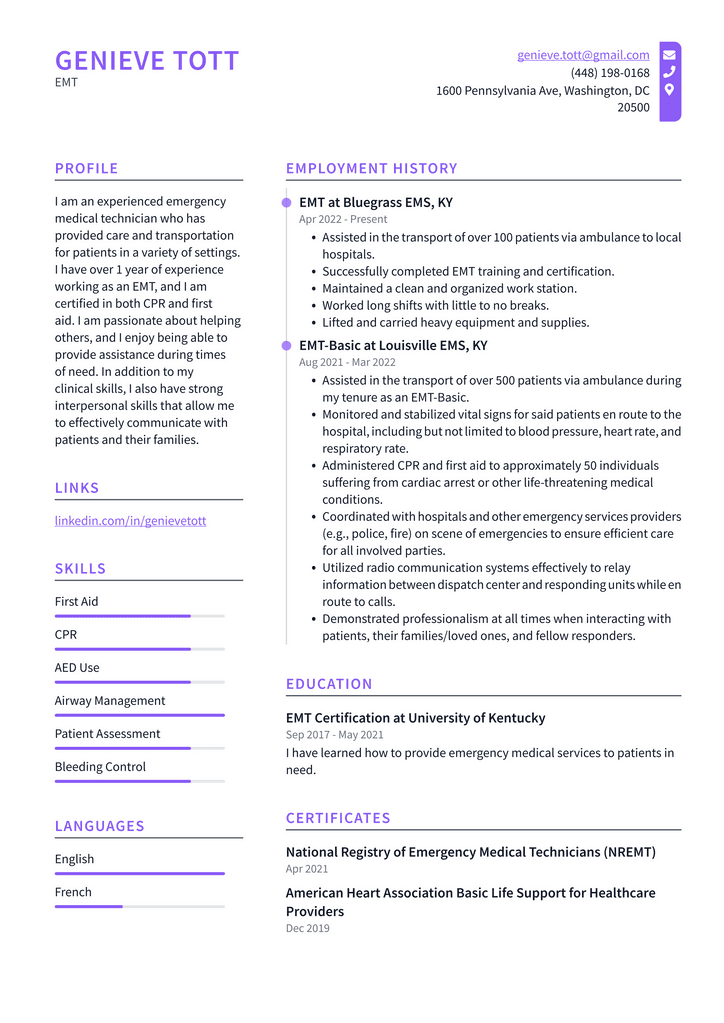
Download This EMT Resume as PDF
What Makes a Good Paramedic Resume?
We all have different skills, but some are more important for the job than others. For example, the ability to fly helicopters or drive an ambulance might be a valuable skill for a pilot; however, it’s not relevant for paramedics. So, when deciding what skills to include, you should choose those most relevant to the job. You might be surprised by how many people overlook this simple point. Keep in mind that skills are different from qualifications. Skills are things you can do; qualifications are things you’ve done (i.e., a degree in criminal justice). When creating a resume, you should focus on the most relevant skills and experience to the job you are applying for. If you’ve been in the workforce for a while, you may have acquired many skills, some of which might not be as relevant as others. Your resume should be tailored to the job you’re applying for, so don’t worry about including every skill you’ve ever had.
Create a Hook with Your Skills
If you have an awe-inspiring skill, it might be worth including as a hook in your opening paragraph. A theme is an attention-grabbing statement that excites the reader about what comes next. Paramedics often have to deal with stressful situations, so it’s essential to keep your cool. If you’ve ever had to deal with difficult or stressful situations in the past, you might want to include this in your resume. It can be a valuable way to demonstrate your ability to remain calm and composed in any situation.
Use a Scannable Format
Different types of resumes have other formats, but most hiring managers prefer those that are scannable. A scannable resume has been formatted so that a computer can understand the content. This means you should avoid using graphics and different fonts in your resume. Hiring managers use computer software to scan through the vast number of applications they receive. This allows them to quickly and efficiently shortlist candidates most qualified for the job. This software does not understand graphics and different fonts, so you must present your information in a way the computer can read. Therefore, it is best to stick to a standard font like Times New Roman and format your entire resume in a plain font without any graphics.
Mention your most relevant experience first
You should always start by describing your most relevant experience, mainly if it is relevant to the job that you’re applying for. This can help to draw the reader’s attention to your best experience. If you’ve done a few different things early on in your career, describe your most recent or relevant experience first. If you’ve been working for a while (more than a few years), you might decide to list your work history first and then follow it up with your education and skills. It’s up to you. Just make sure you list your most relevant experience first.
Don’t be afraid to use length as a benefit
If you have a long and varied work history, you might be tempted to leave some of it out. Don’t! An employer might be put off because you’ve worked in many different jobs, but that doesn’t mean you should leave it off. You might want to look at your long work history as a positive rather than a negative. For example, your long work history might suggest that you’re a keen, dedicated person who is willing to try new things and isn’t afraid to step out of your comfort zone. It is also possible that an employer might be put off because you’ve worked in many different jobs, but that doesn’t mean you should leave it off. Again, you might want to look at your long work history as a positive rather than a negative.
Summing up
You must include all relevant information in whatever kind of resume you decide to write. Remember, an employer will be looking for reasons not to hire you, so make sure you don’t leave anything out. Besides, the better your resume, the greater your chances of getting an interview. A well-written resume is crucial to getting noticed among all the other applicants.